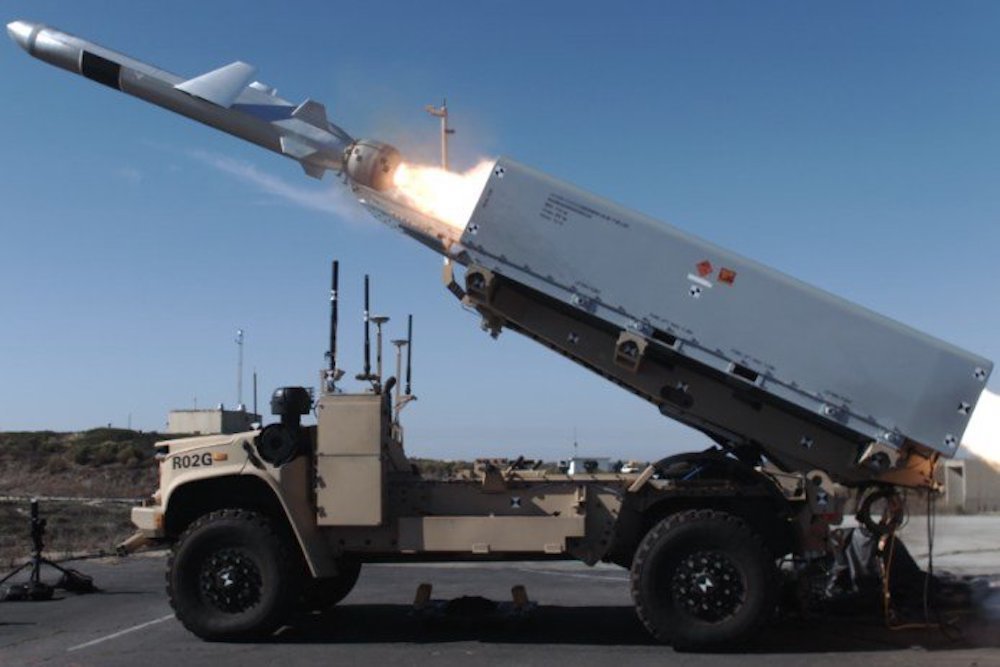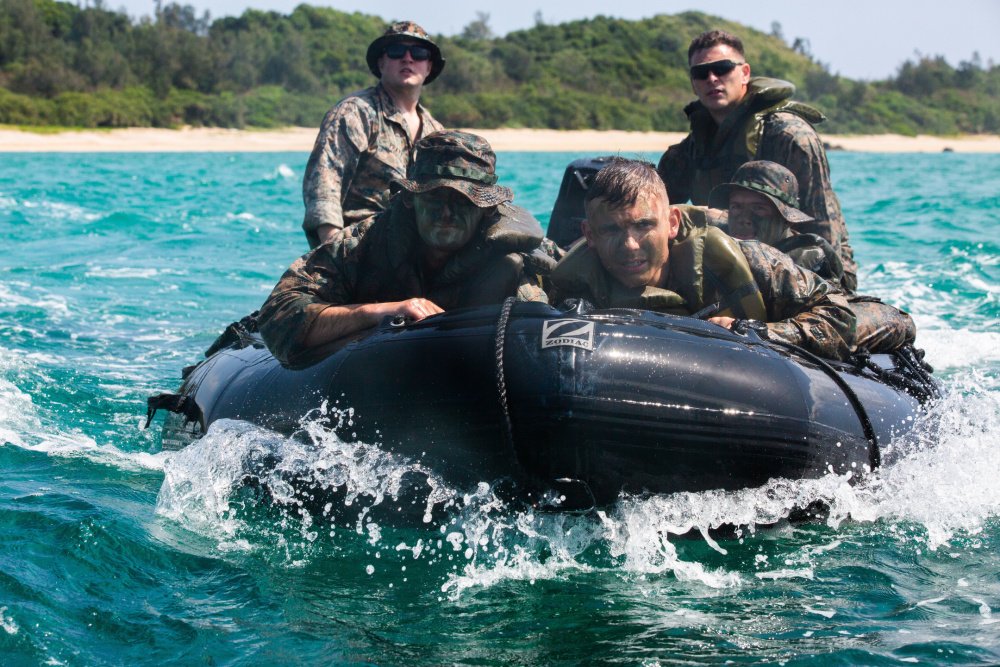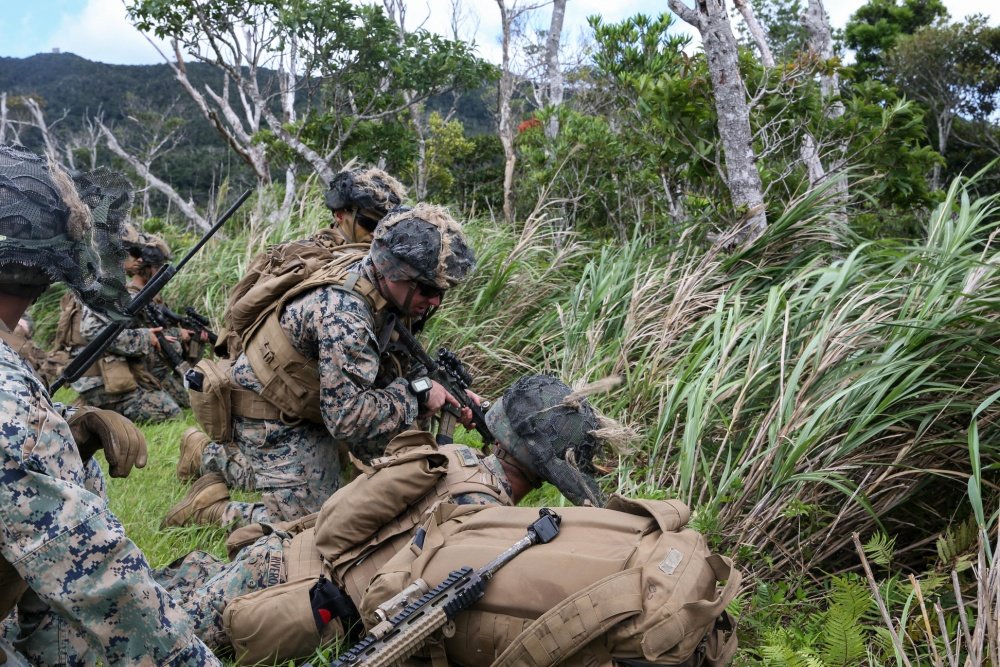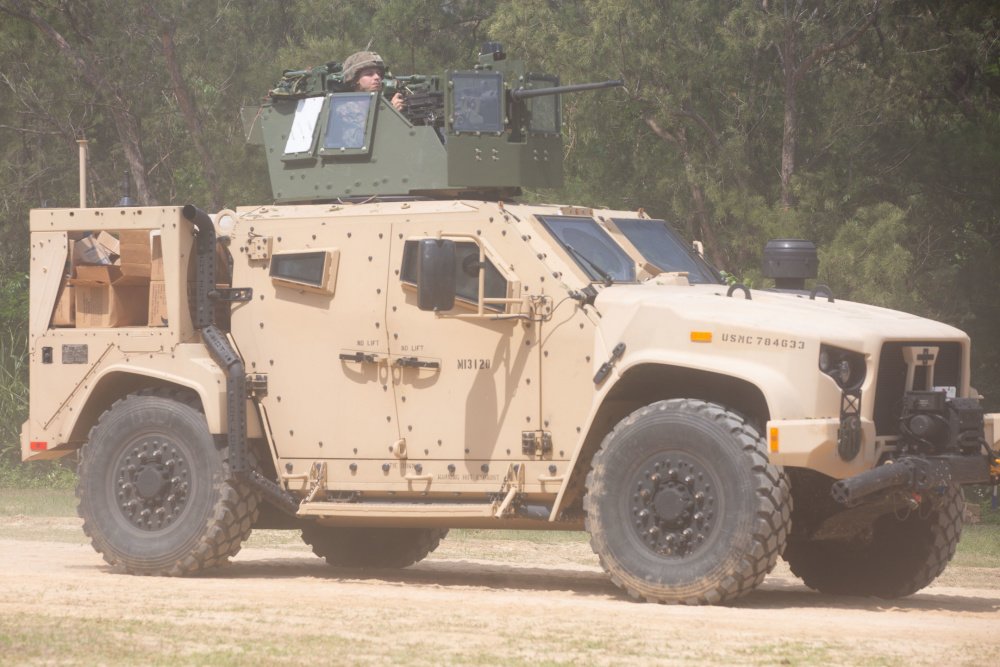Marines Request Dozens of Ship Killing Missiles for Littoral Regiment

A Remotely Operated Ground Unit for Expeditionary Fires (ROGUE) vehicle launches a Naval Strike Missile during a November 2020 test at Point Mugu, Calif. US Navy photo.
As the Marine Corps continues to implement its “Force Design 2030” concept, the service branch has requested 64 anti-ship missiles and 48 Tomahawk cruise missiles in this year’s budget. The 3rd Marine Regiment — the first Marine Littoral Regiment, or MLR, being stood up by the Corps — is the intended recipient. When delivered, the MLR will have a dedicated anti-ship capability, a key component of the new concept and a first for the service.
The MLR overall represents a wholesale change in how the Marine Corps plans to fight future conflicts. It pivots the service away from nearly two decades of fighting insurgencies in the Middle East and reorients toward so-called great power competition adversaries such as China.
“The 2018 National Defense Strategy redirected the Marine Corps’ mission focus from countering violent extremists in the Middle East to great power/peer-level competition, with special emphasis on the Indo-Pacific,” wrote Commandant of the Marine Corps Gen. David Berger.

According to the Marine Corps Times, the 3rd Marine Regiment in Hawaii is slated to be the first fully outfitted littoral regiment and is expected to be operational in 2023. Comprising roughly 2,000 Marines and sailors instead of the current 3,400 in 3rd Marines, littoral regiments will also have no tanks and fewer cannon-based artillery platforms.
This drop in firepower offered by legacy systems will be replaced by a significant increase in rocket-based artillery and missile systems. Additionally, linking these systems to a “kill chain” of radar systems, sensors, and advanced communications will provide Marines the ability to engage targets on land, at sea, and in the air.
“We will equip our Marines with mobile, low-signature sensors and weapons that can provide a landward complement to Navy capabilities for surface warfare, antisubmarine warfare, air and missile defense, and airborne early warning,” Berger wrote.

The MLR mission will be to seize key pieces of terrain in sea lanes vital to a future enemy. This differs from historical “forced entry” operations for which the Marine Corps was famous in World War II, which included large-scale landings and seizures of entire islands such as Okinawa or Guadalcanal.
Instead, the new mission is to seize smaller areas with a more nimble force and then use systems such as anti-ship and cruise missiles to prevent an enemy from achieving safe passage.
“Achieving this […] requires a force that can create the virtues of mass without the vulnerabilities of concentration, thanks to mobile and low-signature sensors and weapons,” wrote Berger.
The Joint Light Tactical Vehicle, or JLTV, is the choice of the Corps to fulfill this aspect of the 2030 concept, and the service is asking for 92 in this year’s budget request. The JLTV will act as a platform to fire anti-ship missiles due to its high mobility and low visibility.

The JLTVs the service is requesting also represent an upgrade to the Marine Corps’ overall ground combat capability. For nearly two decades, the service has been reliant on the more cumbersome and less capable High Mobility Multipurpose Wheeled Vehicle (HMMWV), and the Mine Resistant Ambush Protected vehicle, or MRAP.
The JLTV also represents a single platform capable of supporting ground combat and firing the missiles requested by the Marine Corps. According to the US Naval Institute, at the end of April, Raytheon released a photo of a successful test of the Corps’ new missile system. In addition, a naval strike missile was fired from a Remotely Operated Ground Unit for Expeditionary Fires, or ROGUE, at Point Mugu in California, signaling a new era in combat capability for the Marines.
According to the US Naval Institute, Marine Lt. Gen. Eric Smith told lawmakers during a hearing on the subject, “That capability causes any threat to have to take a step back and consider that there are potently dozens of these forces scattered throughout the Pacific. Means that the sea lanes in support of Distributed Maritime Operations are no longer free and open for them.”
Read Next:

James Webb served as a US Marine infantryman from 2005 to 2010, completing a combat tour in Iraq. He’s worked as a freelance writer and photojournalist covering US troops in Afghanistan, and Webb spent more than two years in the US Senate as a military legislative assistant and as the personal representative of a member on the US Senate Foreign Relations Committee.
BRCC and Bad Moon Print Press team up for an exclusive, limited-edition T-shirt design!
BRCC partners with Team Room Design for an exclusive T-shirt release!
Thirty Seconds Out has partnered with BRCC for an exclusive shirt design invoking the God of Winter.
Lucas O'Hara of Grizzly Forge has teamed up with BRCC for a badass, exclusive Shirt Club T-shirt design featuring his most popular knife and tiomahawk.
Coffee or Die sits down with one of the graphic designers behind Black Rifle Coffee's signature look and vibe.
Biden will award the Medal of Honor to a Vietnam War Army helicopter pilot who risked his life to save a reconnaissance team from almost certain death.
Ever wonder how much Jack Mandaville would f*ck sh*t up if he went back in time? The American Revolution didn't even see him coming.
A nearly 200-year-old West Point time capsule that at first appeared to yield little more than dust contains hidden treasure, the US Military Academy said.












